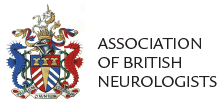Dimitri Kullmann

Focal epilepsy: from mechanisms to rational gene therapy (plenary 8)
Dimitri Kullmann, UCL Queen Square Institute of Neurology, UK
08:30 - 09:30 BST, Wednesday 26th April 2023
Dimitri Kullmann obtained his BA and DPhil degrees from Oxford University, and studied medicine in Oxford and London. He undertook postdoctoral work in San Francisco, and qualified as a neurologist at the National Hospital Queen Square, London, where he continues to see patients. His laboratory studies fundamental mechanisms of synaptic transmission and plasticity in the mammalian brain, and neurological channelopathies. He is also attempting to bring gene therapies for drug-resistant focal epilepsy to the clinic, with a first-in-human trial due to start in 2023. He is a Fellow of the Royal Society and of the Academy of Medical Sciences and was the Editor-in-Chief of Brain between 2014 and 2020.
Focal epilepsy: from mechanisms to rational gene therapy
Epilepsy is often described as a state of excitation/inhibition imbalance, but what does this mean at the level of the cortical microcircuit? I shall review alternative hypotheses of how inhibition can break down, allowing runaway excitation, which is at the core of focal-onset seizures. Some of the insights point to novel therapeutic targets. Given the failure of small molecules to achieve seizure freedom in about a third of people with epilepsy, and the long-term consequences of surgery, there is an urgent need to develop new treatments, of which gene therapy is the most promising. With clinical trials around the corner, there are important choices to be made around the optimal viral vectors, promoters and transgenes that can suppress seizures without interfering with normal brain function.
 This plenary is supported and convened by the Association of British Neurologists, a partnering organisation for BNA2023.
This plenary is supported and convened by the Association of British Neurologists, a partnering organisation for BNA2023.
The Association of British Neurologists' mission is to improve the health and well-being of people with neurological disorders by advancing the knowledge and practice of neurology in the British Isles.
